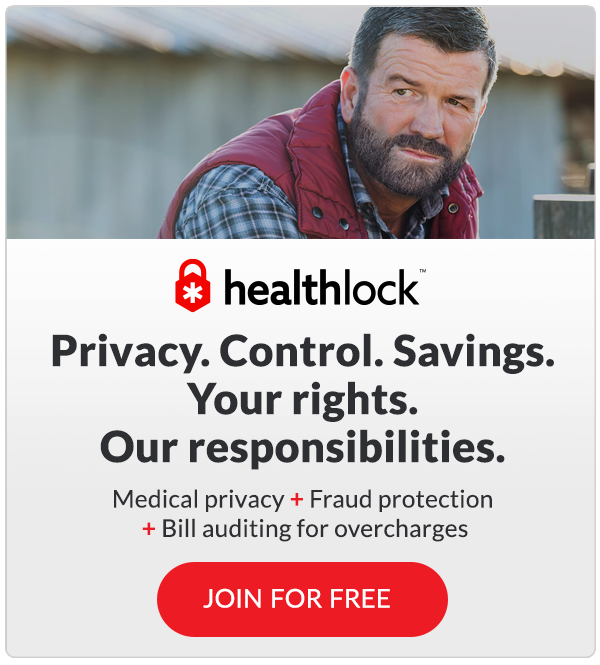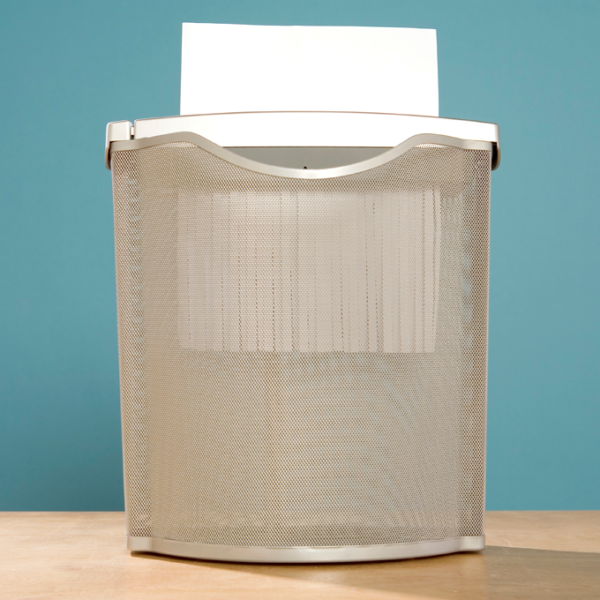Here at HealthLock, we’re all about protecting your medical privacy. We can do a lot to make sure your healthcare information stays secure, but there’s plenty that you can do to look after your data, too. This brings us to the third entry in our Protecting Your Privacy series: the importance of reviewing your medical bills.
Your medical bills are often your first line of defense against healthcare fraud and medical identity theft. Ask for a bill next time you visit your healthcare practitioner. When you get home, review it carefully, and then compare it to your insurer’s Explanation of Benefits.

Why is it so important to review my medical bills?
Reviewing your bill allows you to make sure the services listed on it are the ones you received. If anything suspicious appears on it, this is an early chance for you to contact your doctor and fix it.
There may be some differences depending on your doctor’s office, but all bills should contain:
- Reason for visiting (a particular health complaint vs. annual wellness exam, for example)
- The date you visited
- Any treatments and procedures you received on that date, along with their codes
- The amount charged to your insurance vs. you
- Balance due
You may not have to pay the full balance on the day you get the bill, as some doctors prefer to see what insurance will cover before sending you a request for payment.
What is an Explanation of Benefits?
Your health insurance company will send you an “Explanation of Benefits” (EOB) after your visit to your healthcare provider. You may be able to access the document virtually through your insurance provider portal within a day or two, or you may have to wait a couple of weeks for your benefits statement to arrive. You can usually recognize it because it will state THIS IS NOT A BILL across the top in bold letters.
Your EOB will contain:
- The services you received, how much they cost, and who provided them
- The dates you received these services
- How much the insurance company is going to pay for each service
- What portion the insurance company won’t cover—you’ll have to pay this
What signs of fraud should I look for when comparing my EOB to my doctor’s bill?
The most important thing to look for is services that don’t match the ones you received.
For example, if you went to the dermatologist to have your acne checked, but your EOB states you had multiple moles removed, that is a completely different (and likely more expensive) procedure. It’s also not the treatment you received, nor the reason you went to the doctor’s office.

You should also keep a sharp eye on the dates you received these services. They ought to be the same on both the EOB and the doctor’s bill.
If you notice information that doesn’t match up, or is just plain wrong, then it’s time to call your healthcare provider and your insurance company. Your issue may be as simple as someone incorrectly typing a code, but you may also be a victim of healthcare fraud. By alerting your insurer and doctor to these problems, you’re getting ahead of both potential problems and doing your part to protect your privacy.
This seems complicated!
Reviewing medical bills and EOBs can be time-consuming—and if you want to do it right, it helps to have a working knowledge (or willingness to learn more about) medical coding. That’s not an easy lift for those with full-time jobs and families to provide for.
There’s an easier way to make sure your medical bills and EOBs are in order: turn to HealthLock. Our powerful AI technology reviews your bills and EOBs to make sure you aren’t being overbilled or incorrectly billed. If we spot something suspicious, we’ll let you know. We can then help you handle it and help protect you from potential overcharges or damages.
You can’t always stop fraud from happening. You can, however, protect yourself against it. Let us help by acting as the first line of defense for your medical privacy.





